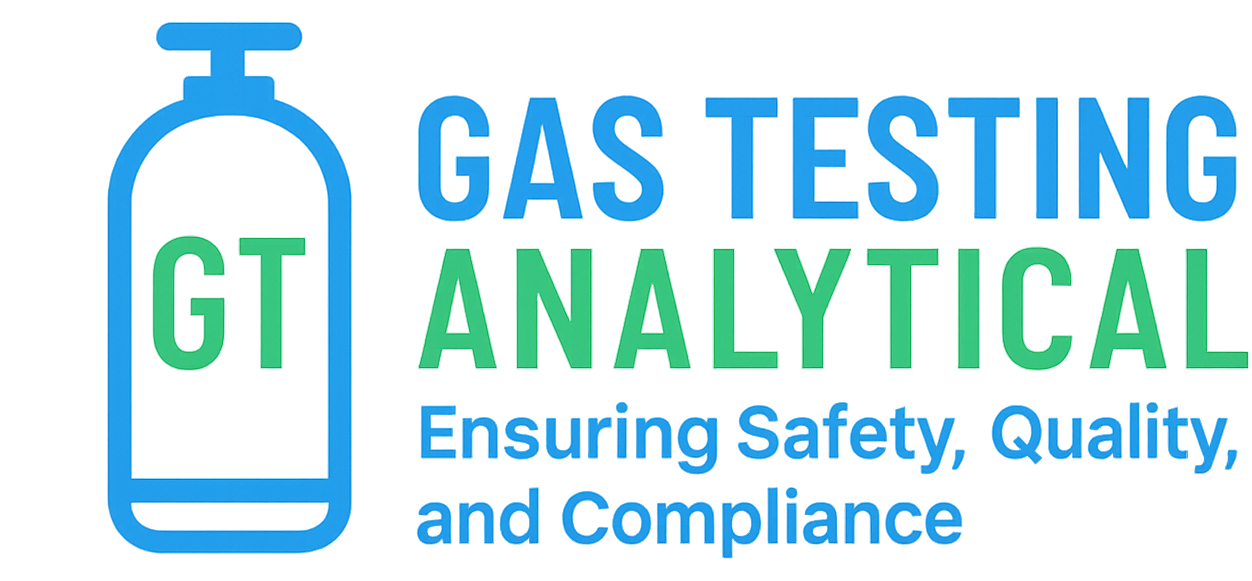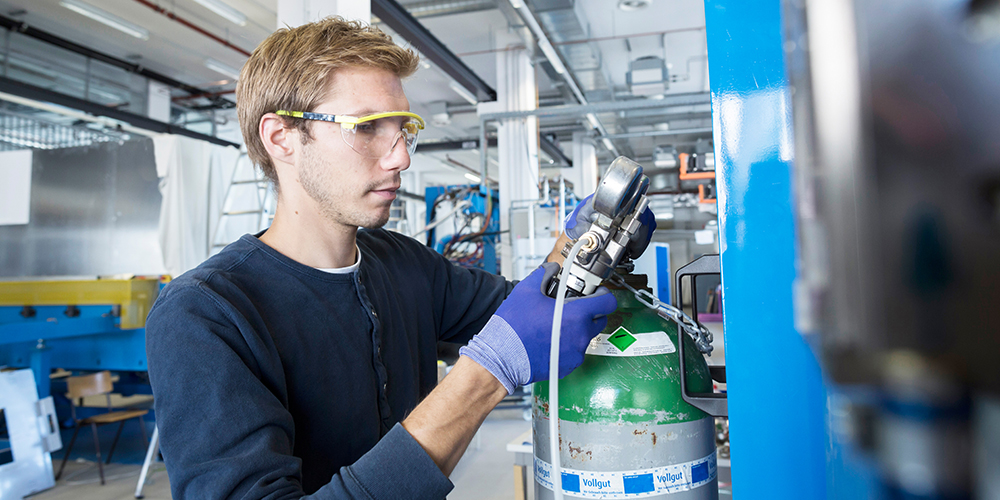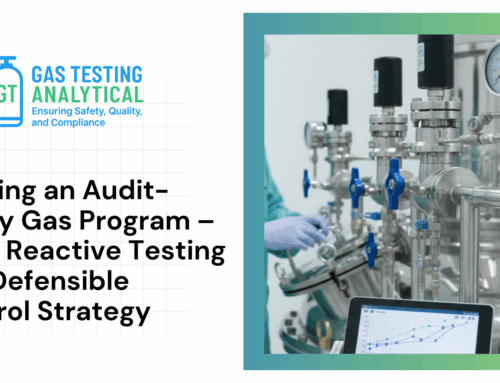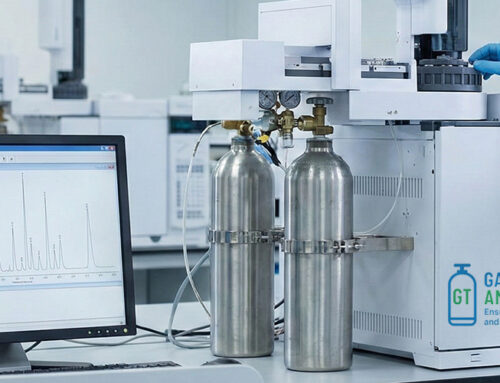Your team is capable, your systems are stable, and your budget is tight. So should you still outsource gas testing to a specialized partner? This decision involves more than simple cost comparison—it requires careful evaluation of technical capabilities, regulatory requirements, resource allocation, and risk tolerance. The wrong choice can lead to compliance failures, wasted resources, and missed opportunities for operational excellence.
The Real Cost of Gas Testing: Beyond the Invoice
When evaluating gas testing options, many organizations focus primarily on the direct costs of sampling and analysis. However, the true cost of gas testing includes hidden expenses that can significantly impact your total investment and return on investment.
Consider the full lifecycle costs of in-house capabilities: equipment procurement and maintenance, staff training and certification, method development and validation, quality assurance oversight, and the ongoing costs of maintaining competency in a specialized field. These costs must be amortized over your testing volume and weighed against the flexibility and responsiveness that in-house capabilities provide.
Outsourcing costs include not just the direct service fees, but also the time invested in vendor selection, contract negotiation, project management, and results review. However, these costs often provide access to specialized expertise and capabilities that would be prohibitively expensive to develop internally.
In-House Sampling: The Appeal of Control
The attraction of in-house gas testing often stems from the desire for immediate availability and direct control over testing schedules. When sampling can be performed on-demand, it enables rapid response to process changes, troubleshooting support, and flexible scheduling that aligns with production requirements.
The Advantages Are Real
Immediate availability represents a significant operational advantage, particularly for facilities with complex production schedules or frequent process changes. In-house teams can respond immediately to unexpected events, support troubleshooting activities, and provide real-time feedback during process development.
Cost-effectiveness for low-frequency testing is another legitimate advantage. Facilities that require only periodic testing for compliance purposes may find that in-house capabilities provide the best return on investment, particularly when testing requirements are predictable and relatively simple.
Integration with existing quality systems can be seamless when testing is performed in-house. Internal teams understand facility procedures, quality requirements, and regulatory expectations. This integration can reduce communication barriers and ensure that testing activities align with broader quality objectives.
The Hidden Challenges
However, in-house sampling presents challenges that may not be immediately apparent. Staff training requirements extend beyond basic sampling techniques to include understanding of analytical principles, quality control procedures, and regulatory requirements. Maintaining this competency requires ongoing investment in training and professional development.
Equipment requirements for comprehensive gas testing are substantial and specialized. High-quality analytical instruments require significant capital investment, ongoing maintenance, and periodic calibration. The cost of maintaining this equipment may be difficult to justify for facilities with limited testing volumes.
Method development and validation represent another significant challenge. Developing robust analytical methods requires specialized expertise and extensive validation studies. Many facilities underestimate the time and resources required to develop and maintain validated methods that meet regulatory requirements.
Quality assurance oversight adds another layer of complexity. Internal testing programs require the same level of documentation, quality control, and oversight as external laboratories. This overhead can significantly increase the true cost of in-house testing.
Third-Party Partners: Professional Expertise and Compliance Assurance
Specialized gas testing partners bring several advantages that can be difficult to replicate internally. These advantages become particularly important for facilities with complex testing requirements, high regulatory visibility, or limited internal resources.
The Professional Advantage
Full compliance with regulatory standards represents perhaps the most significant advantage of professional gas testing partners. Specialized laboratories maintain accreditation to relevant standards (ISO/IEC 17025, FDA registration, etc.) and have experience with regulatory inspections and audits. This experience translates into testing procedures, documentation, and quality systems that meet regulatory expectations.
Calibrated equipment and trained personnel provide assurance that testing results are accurate and defensible. Professional laboratories invest heavily in equipment maintenance, calibration, and staff training. This investment is spread across multiple clients, making it economically feasible to maintain capabilities that might be prohibitively expensive for individual facilities.
Objective, validated results provide additional credibility, particularly in regulatory contexts. External testing eliminates potential conflicts of interest and provides independent verification of system performance. This objectivity can be particularly valuable during regulatory inspections or when investigating compliance issues.
Access to Specialized Expertise
Professional gas testing partners bring specialized knowledge that extends beyond basic analytical capabilities. This expertise includes understanding of regulatory requirements, industry best practices, and emerging contamination risks. Partners can provide valuable insights into system design, sampling strategies, and acceptance criteria that improve the effectiveness of your gas testing program.
Troubleshooting support is another valuable service that professional partners can provide. When unexpected results occur, experienced partners can help identify root causes, develop corrective actions, and prevent recurrence. This support can be particularly valuable for facilities with limited gas system expertise.
Staying current with regulatory changes and industry developments requires ongoing investment in professional development and industry participation. Professional partners maintain this expertise as part of their core business, providing clients with access to current knowledge and best practices.
The Self-Service Model: Hybrid Approach for Optimal Flexibility
For many facilities, a hybrid approach combining internal capabilities with external expertise provides the optimal balance of control, cost-effectiveness, and technical assurance. Gas Testing Analytical’s self-service model exemplifies this approach by providing training, equipment, and analytical support while maintaining internal control over sampling schedules and procedures.
Training Your Staff
Professional training programs can provide your staff with the knowledge and skills needed for effective gas sampling while ensuring compliance with regulatory requirements. Training should cover not just sampling techniques, but also the underlying principles of gas system contamination, quality control procedures, and regulatory expectations.
Ongoing technical support ensures that your staff can handle unexpected situations and maintain competency over time. This support might include telephone consultation, on-site assistance, and access to technical resources and databases.
Equipment Rental and Support
Renting specialized equipment provides access to high-quality analytical capabilities without the capital investment and maintenance overhead of equipment ownership. Rental programs typically include equipment calibration, maintenance, and technical support, ensuring that your testing capabilities remain current and reliable.
Flexible rental terms allow you to scale your testing capabilities based on actual needs rather than projected requirements. This flexibility is particularly valuable for facilities with variable testing volumes or seasonal demand patterns.
Analytical Excellence
Even with internal sampling capabilities, external analytical support provides access to specialized expertise and equipment that may not be practical to maintain internally. Professional laboratories can provide rapid turnaround times, specialized analytical methods, and comprehensive reporting that supports your quality objectives.
Quality assurance oversight from professional partners ensures that your testing program meets regulatory requirements and industry best practices. This oversight includes review of sampling procedures, data analysis, and reporting to ensure consistency and compliance.
Making the Decision: A Strategic Framework
The choice between in-house and outsourced gas testing should be based on a comprehensive evaluation of your specific requirements, capabilities, and objectives. Consider the following factors in your decision-making process:
Testing Volume and Frequency: High-volume, frequent testing may justify internal capabilities, while low-volume, periodic testing may be more cost-effective when outsourced.
Regulatory Requirements: High-visibility applications with stringent regulatory requirements may benefit from the credibility and expertise of professional partners.
Technical Complexity: Complex testing requirements may require specialized expertise that is difficult to maintain internally.
Resource Availability: Consider not just the direct costs, but also the availability of skilled personnel and management attention required for internal programs.
Risk Tolerance: Evaluate your tolerance for compliance risk and the potential consequences of testing failures.
Strategic Importance: Consider whether gas testing represents a core competency that provides competitive advantage or a support function that can be effectively outsourced.
The Bottom Line: Match Your Approach to Your Needs
There’s no universal answer to the in-house versus outsourced question. The optimal approach depends on your specific circumstances, requirements, and objectives. However, certain principles can guide your decision:
For high-risk, complex, or regulatory-critical applications: Professional partners provide the expertise, credibility, and quality assurance needed to ensure compliance and minimize risk.
For routine, low-complexity testing: Internal capabilities may provide adequate results with greater flexibility and lower costs.
For most facilities: A hybrid approach combining internal capabilities with external expertise provides the optimal balance of control, cost-effectiveness, and technical assurance.
In short: Don’t make this decision based solely on cost considerations. Evaluate your technical requirements, regulatory obligations, and strategic objectives to determine the approach that best serves your long-term interests. If it’s high-risk, complex, or regulatory-facing—don’t go it alone. Partner with professionals who understand both the technical requirements and the regulatory expectations.
The investment in professional gas testing expertise pays dividends in compliance assurance, operational efficiency, and peace of mind. Make sure your gas testing program supports your quality objectives rather than creating unnecessary risks or limitations.





